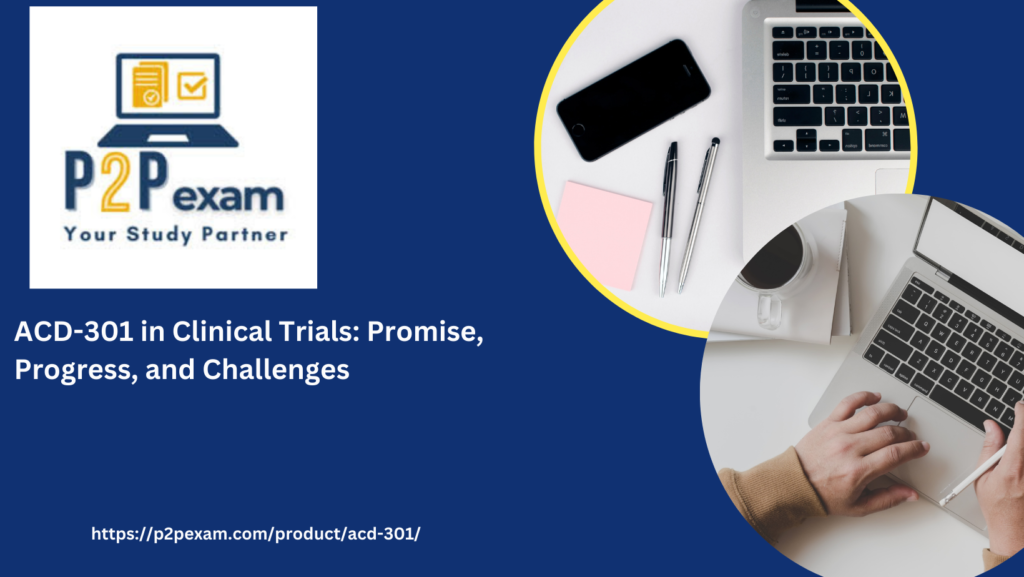Unlocking the Future: A Complete Guide to the ACD-301 Certification
In an increasingly cloud-driven world, certification is not just a badge of knowledge—it’s a career catalyst. The ACD-301 Certification, known formally as the Advanced Cloud Developer 301, is one such elite credential. Designed for professionals aiming to validate their advanced skills in cloud-native development, microservices architecture, and scalable application design, this certification is becoming a must-have in the tech industry.
Whether you’re a cloud engineer looking to climb the career ladder or a software developer aiming to prove your expertise, this guide will walk you through everything you need to know about ACD-301.
What Is ACD-301?
The ACD-301 is an advanced-level certification focused on cloud-native application design and deployment. It covers a wide array of topics including:
- Cloud infrastructure fundamentals (multi-cloud and hybrid cloud)
- Advanced container orchestration (Kubernetes, Docker)
- Microservices patterns and service mesh (Istio, Linkerd)
- CI/CD pipeline implementation
- Serverless computing and cloud automation
- Performance monitoring and cost optimization
Offered by several major certification bodies (depending on your ecosystem, such as AWS, Google Cloud, or vendor-neutral providers), ACD-301 aims to test both theoretical understanding and real-world application of cloud technologies.
Who Should Take the ACD-301?
The ACD-301 certification is ideal for:
- Senior developers and software architects working on cloud-native projects
- DevOps engineers seeking to formalize their expertise
- Cloud consultants providing scalable application solutions
- Tech leads or managers overseeing distributed teams and infrastructures
Prerequisites are typically 2–3 years of professional experience in cloud environments and familiarity with distributed system design.
Exam Overview
Format:
- Duration: 120–150 minutes
- Question Types: Multiple choice, scenario-based, and hands-on labs
- Number of Questions: 50–70
- Passing Score: Varies by provider, typically 70–75%
Core Domains:
- Architecture Design & Scalability
- Containerization & Orchestration
- Security and Compliance
- CI/CD and Automation
- Monitoring & Performance Optimization
Some exams may include live coding challenges or case study presentations, especially in updated 2025 versions.
How to Prepare for ACD-301
1. Understand the Blueprint
Start by downloading the official exam guide. Break down each domain and map it to your current knowledge.
2. Online Courses & Bootcamps
Platforms like Coursera, Pluralsight, and A Cloud Guru offer targeted ACD-301 prep courses. Look for ones that include practice labs and real-world scenarios.
3. Hands-On Practice
Use cloud sandboxes (AWS Free Tier, GCP’s Always Free) to get your hands dirty. Focus on Kubernetes deployments, Helm charts, and configuring CI/CD pipelines.
4. Join Study Groups
Online communities on Reddit, LinkedIn, and Discord can provide peer support, shared resources, and motivation.
5. Take Practice Tests
Use mock exams to simulate the real test environment. Identify weak areas and revise them thoroughly.
Real-World Applications
Post-certification, ACD-301 holders often take on roles such as:
- Cloud Solutions Architect
- Lead DevOps Engineer
- Platform Engineer
- Technical Product Manager
These roles typically involve architecting large-scale applications, mentoring teams, and interfacing with product and business stakeholders.

Final Thoughts
The is more than just a test—it’s a benchmark of mastery. In ACD-301 pdf dumps a field where staying ahead of the curve is essential, earning this certification demonstrates your commitment to technical excellence and your readiness to lead in the cloud-native era.
Whether you’re eyeing a promotion, planning a career pivot, or just want to stay at the forefront of innovation, the ACD-301 can unlock doors to new and exciting opportunities.
